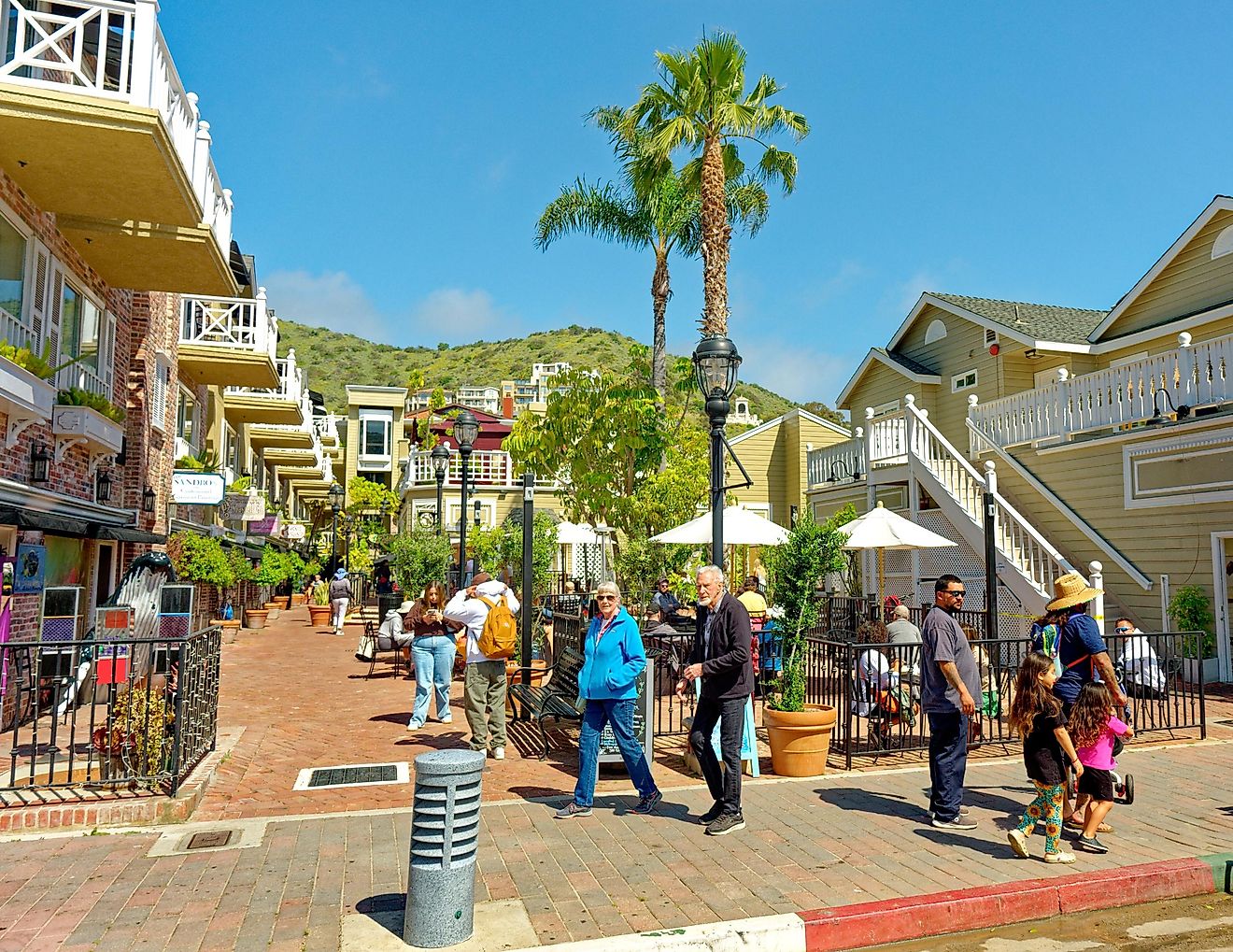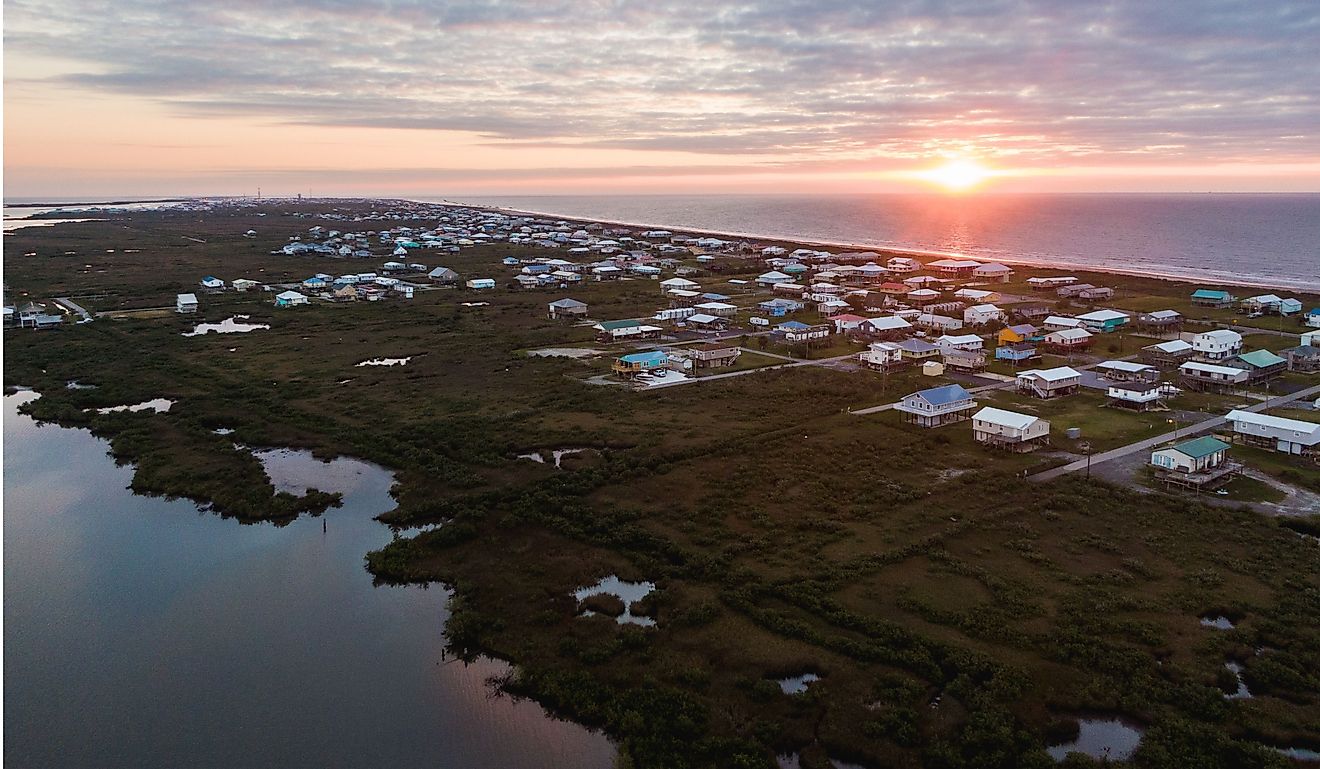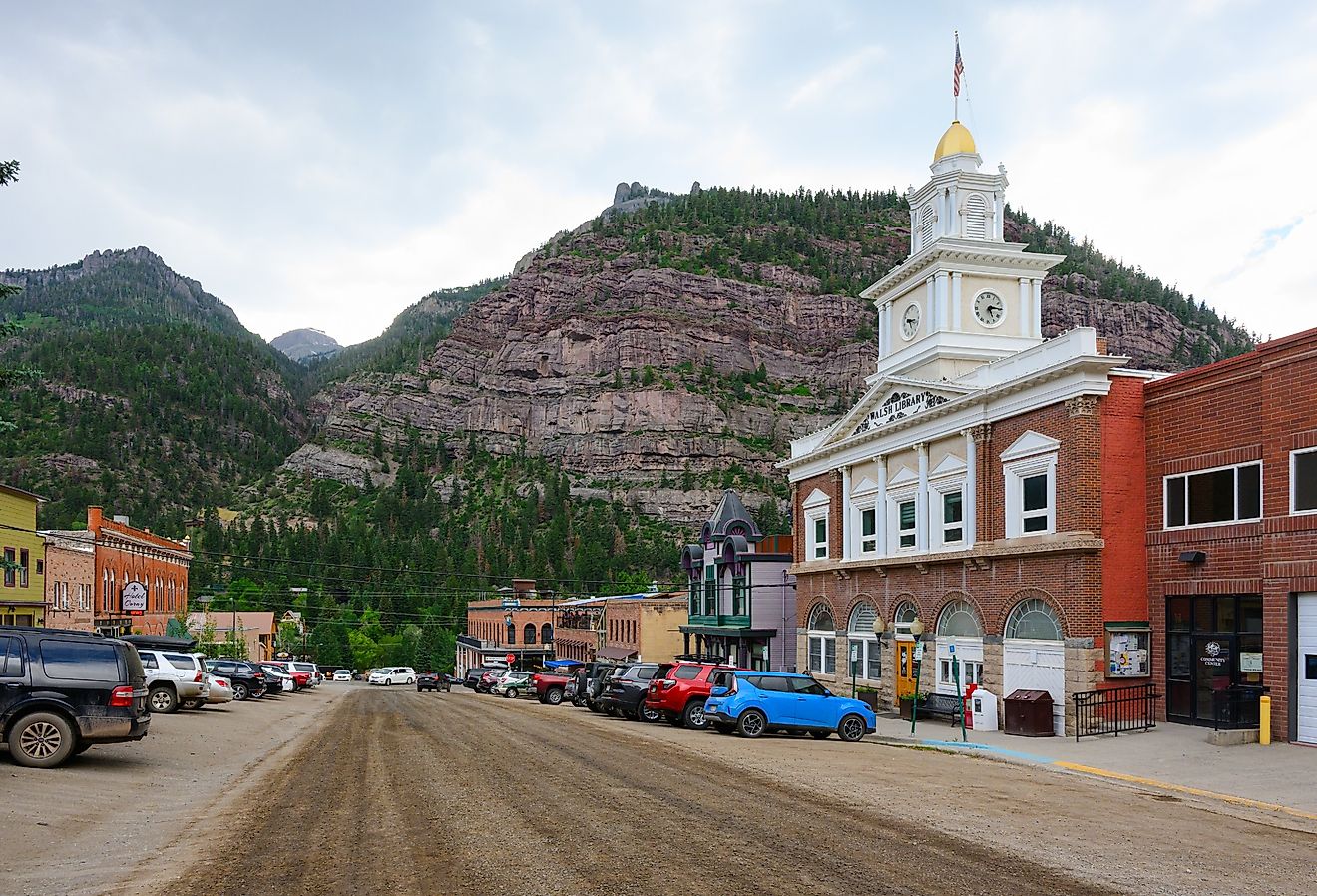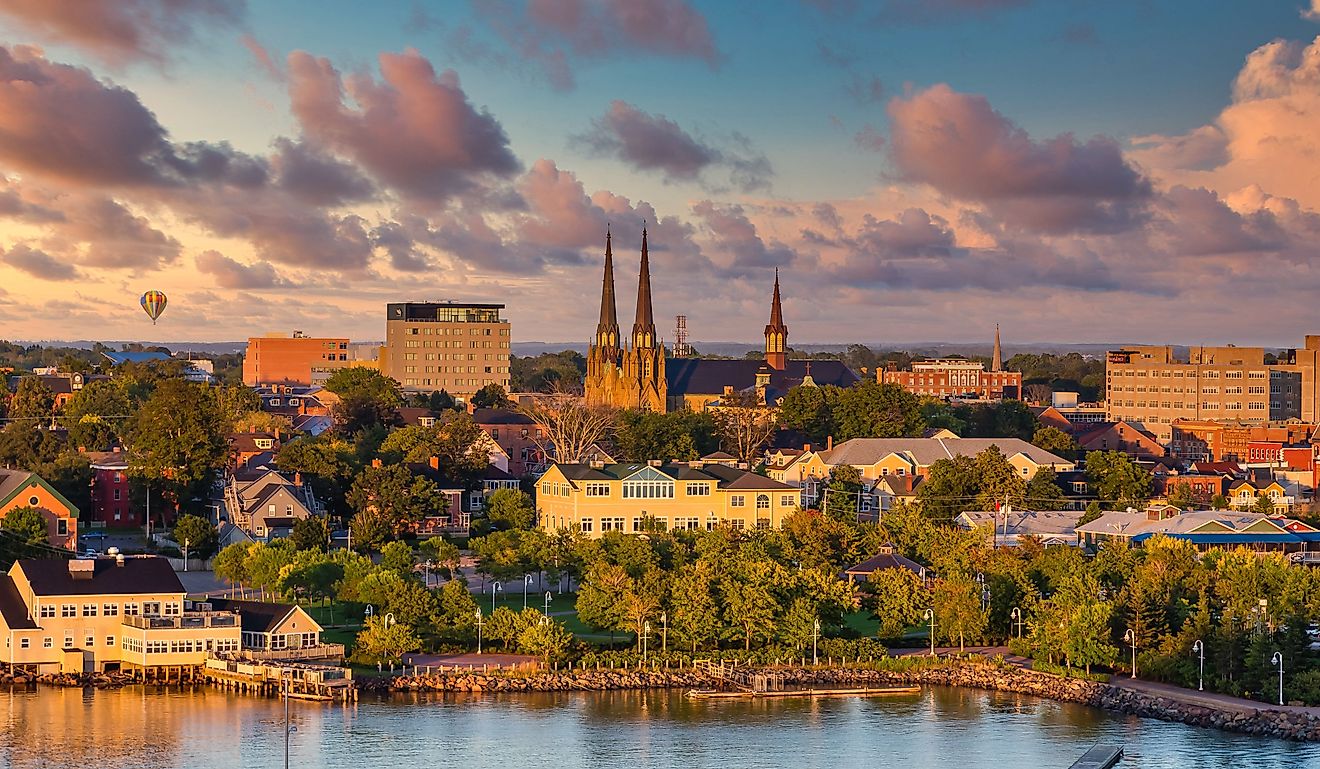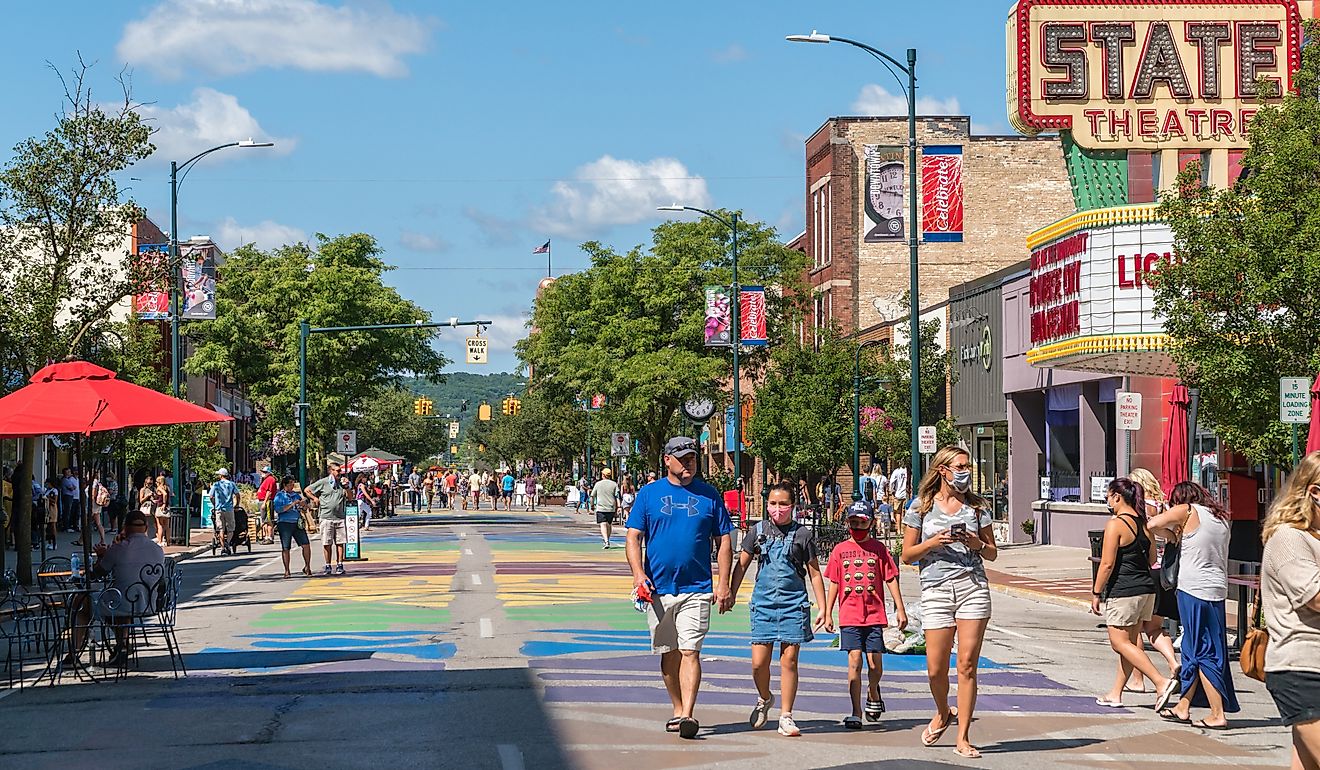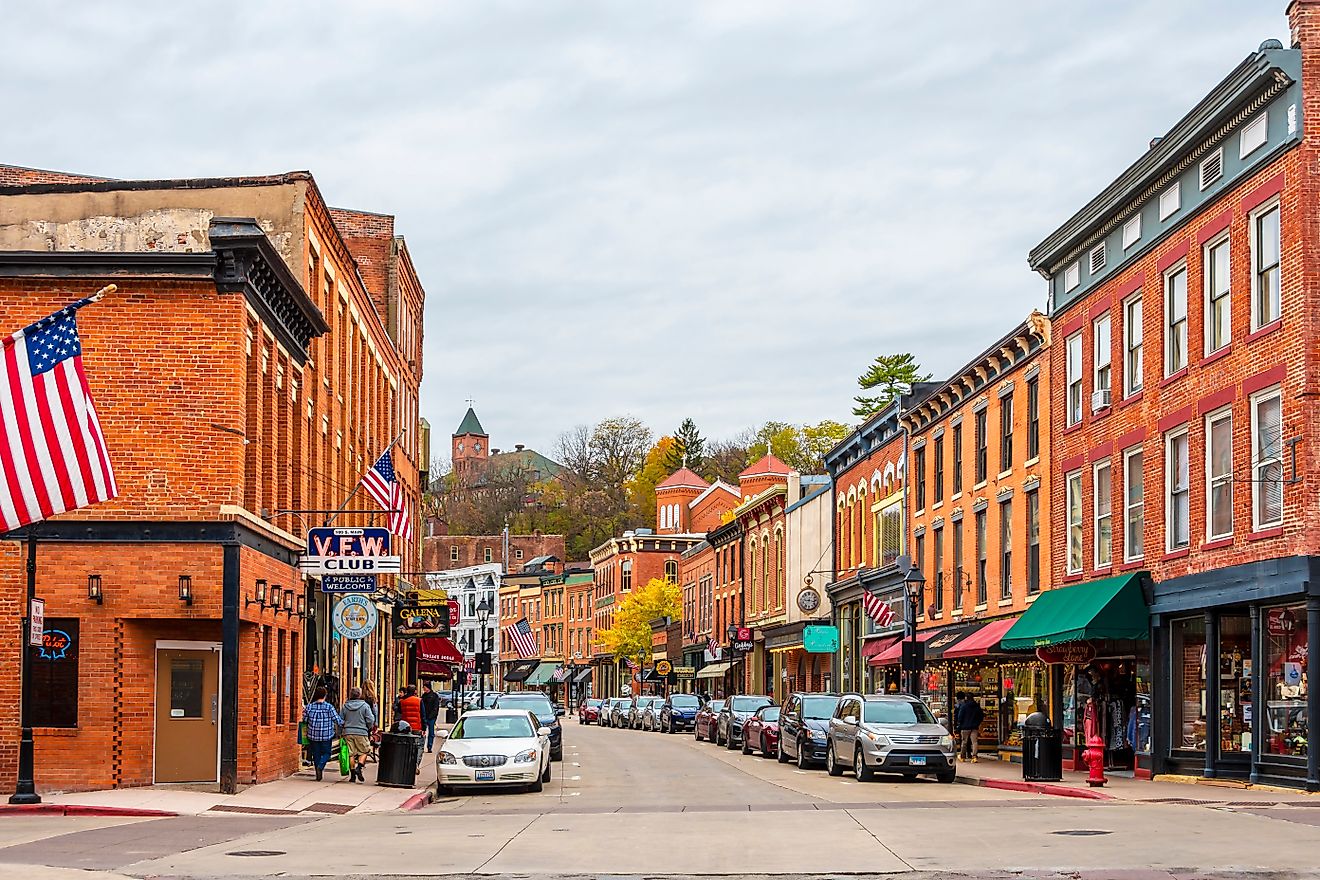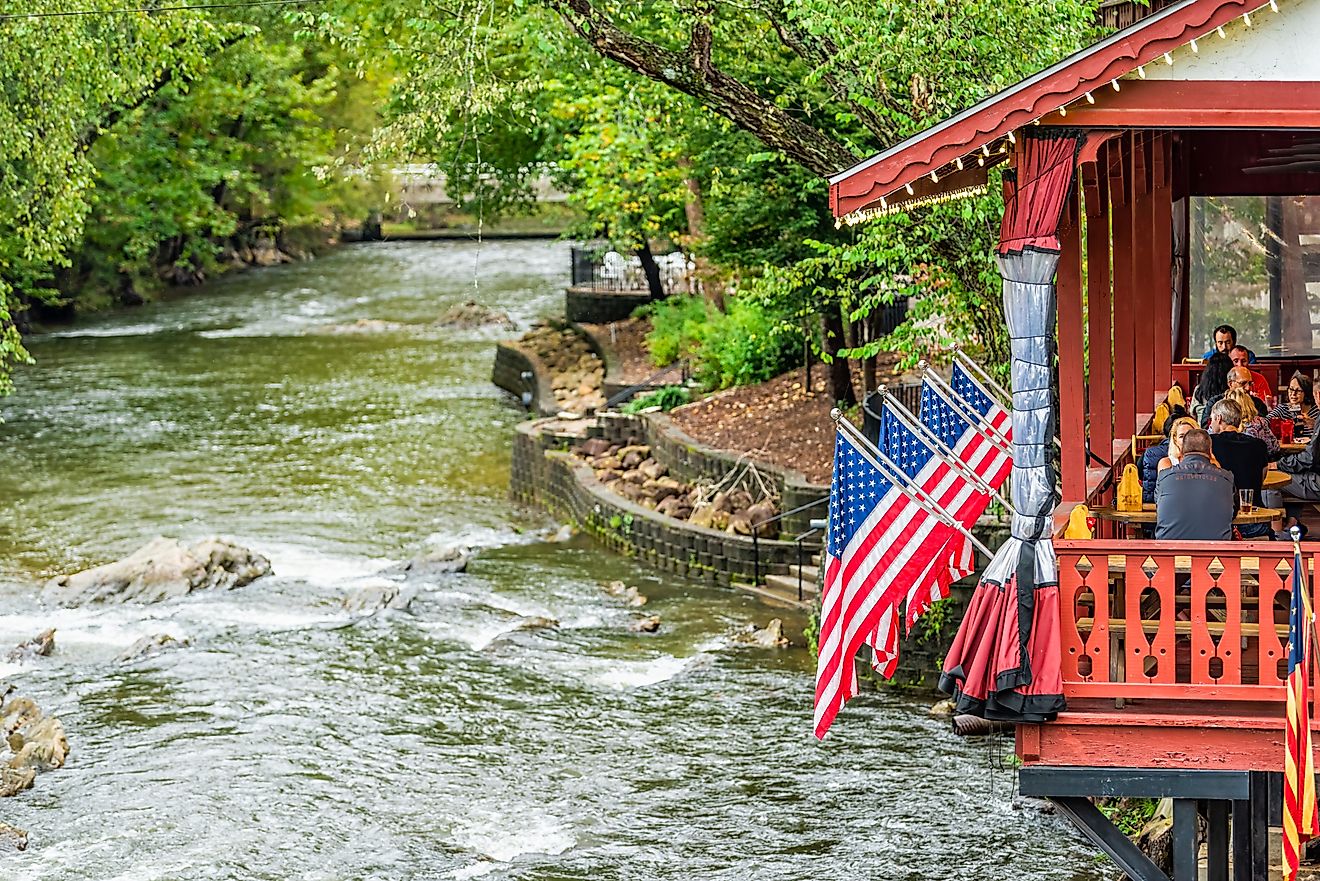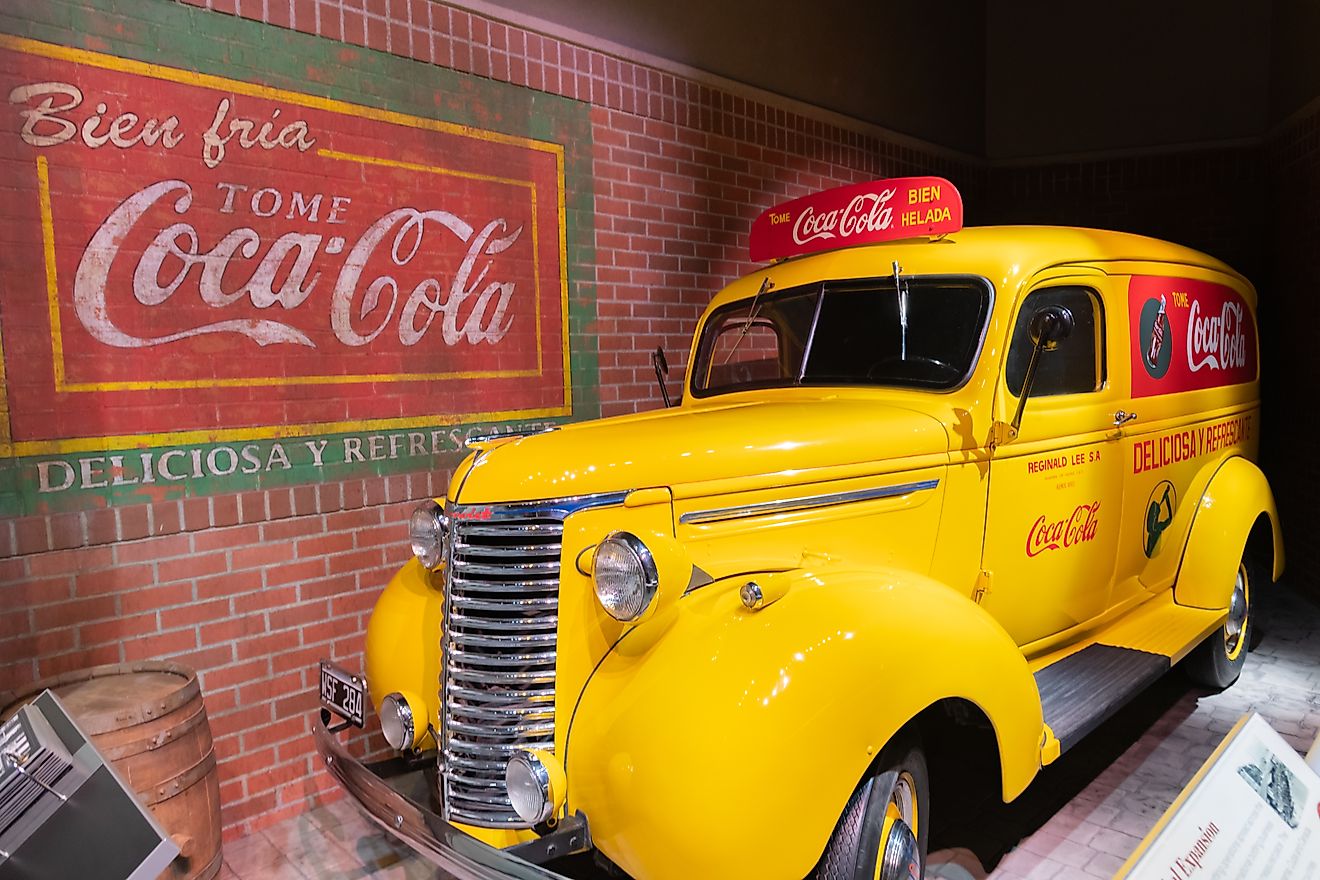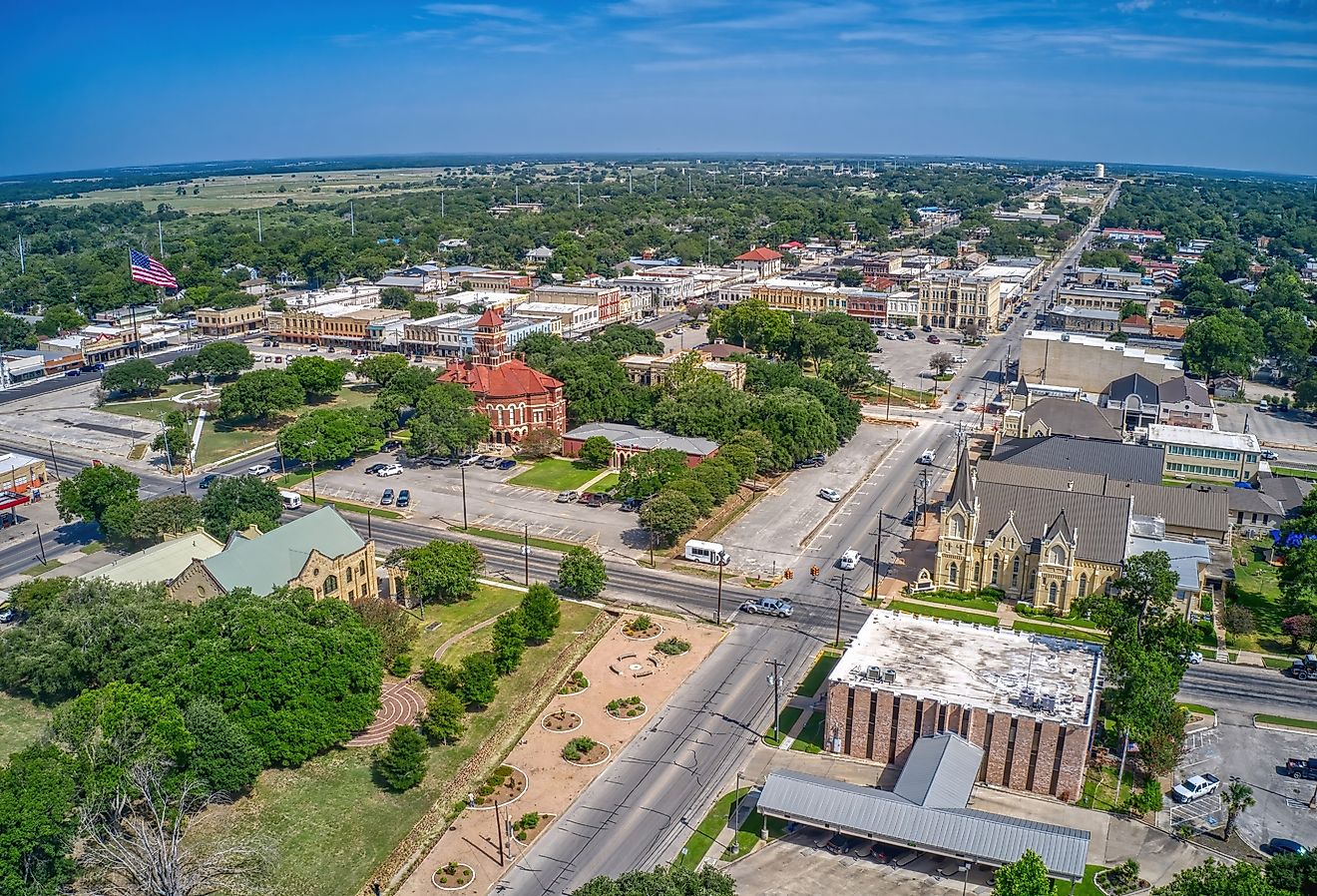
11 Best Small Towns To Visit In Wyoming
Wyoming, the 10th largest and least populous US State, is renowned for its varied topography featuring the majestic mountain ranges of the Rockies, rolling hills, broad river valleys, acres of prairie grassland, and large basins. In addition, the state boasts vast swaths of federal lands, including two famous national parks, national recreation areas, national wildlife refuges, national fish hatcheries, national monuments, national historic trails, landmarks, and sites, all of which are popular tourist destinations. Dotting the Equality State’s rugged 97,914 sq. mi expanse are some alluring small towns that offer exclusive insights into the Old West’s best-kept secrets. No matter where you choose to stay, you can experience the Wild West, its historic landmarks, museums, rodeos, local celebrations, and endless outdoor opportunities.
Jackson

Situated at the southern end of the fertile Jackson Hole valley in the state’s northwestern portion, Jackson, the biggest town and county seat of Teton County, is surrounded by the Teton and Gros Ventre Mountain ranges. This adorable Old West Mountain town is a popular vacation destination for outdoor recreation enthusiasts due to its proximity to three stunning ski resorts: the Jackson Hole Mountain Resort, Grand Targhee Resort, and Snow King Mountain Resort. Jackson serves as a gateway to the nearby Grand Teton and Yellowstone National Parks, which attract thousands of nature lovers annually. Visitors would love to explore the adjacent Bridger-Teton National Forest and the National Elk Wildlife Refuge, where they can enjoy horse-drawn sleigh rides during winter to witness one of the country’s largest elk herds. Art and cultural aficionados must visit the National Museum of Wild Art and Center for the Arts or spend quality time with dear ones at the town’s numerous charming boutiques and cozy eateries.
Buffalo

Placed at the foothills of the magnificent Big Horn Mountains, Buffalo, the administrative center of Johnson County, is located almost halfway between Mount Rushmore National Memorial and Yellowstone National Park. The 64-mile-long Cloud Peak Scenic Byway skirts along the southern edge of Big Horn National Forest on U.S. Highway 16, connecting the towns of Buffalo and Ten Sleep and offering breathtaking views of the picturesque landscapes of the Cloud Peak Wilderness, the Big Horn Mountains, and Big Horn National Forest. Buffalo’s downtown core features over a dozen historic buildings, including the Occidental Hotel and the Jim Gatchell Museum. Western History enthusiasts would love to visit other interesting sites, such as Fort Phil Kearney, Fetterman’s Massacre Site, Wagon Box Fight, and the legendary “Hole in the Wall” hideout of Butch Cassidy and Sundance Kid. Outdoor lovers can enjoy various recreational activities like hiking, camping, downhill skiing, snowmobiling, snowshoeing, and cross-country skiing.
Dubois

Home to just 911 inhabitants, Dubois is located in Fremont County along the upper Wind River at the beginning of Wyoming Centennial Scenic Byway. Home to spectacular natural landscapes, including the magnificent Absaroka Range, outdoor lovers can enjoy ample recreational activities like hiking, camping, mountain biking, fishing, and big game hunting during summer; and skiing, ice climbing, snowmobiling, and dog sledding during winters. Visiting Dubois’s many historic dude or guest ranches, such as the Rams Horn Guest Ranch, Triangle C Ranch, Crooked Creek Guest Ranch, and Bitterroot Ranch, is one of the most authentic ways to experience the town. Other nearby attractions include the National Bighorn Sheep Interpretive Center, Dubois Museum, National Museum of Military Vehicles, Dubois Town Park, and more than 800,000 acres of pristine wilderness of the Shoshone National Forest. The town hosts numerous festivals and events throughout the year, including a fantastic Fourth of July parade, National Day of the Cowboy, Wind River Mountain Festival, Dubois Friday Night Rodeo, and Christmas Tree Lighting Ceremony.
Ten Sleep

Placed in the Bighorn Basin at the western foothills of the Bighorn Mountains, this small ranching town is about 59 miles west of Buffalo and 26 miles east of Worland in north-central Wyoming’s Washakie County. Home to only 260 residents, Ten Sleep was named after an indigenous method of measuring distance, as the area was only “10 sleeps” from Fort Laramie, Yellowstone National Park, and the Indian Agency on the Stillwater River in Montana. The town is a paradise for rock climbers and outdoor adventure enthusiasts who wish to explore the adjoining mountainous area along with the amazing Ten Sleep Canyon and Powder River Pass. Travelers must also check out local attractions, including the Ten Sleep Mercantile, Ten Sleep Brewing Company, Meadowlark Lake Lodge & Restaurant, Ten Sleep Rock Ranch, and Carter Inn. The town’s annual events, like a two-day rodeo and parade celebrating the Independence Day of the United States and NoWoodStock held during the second weekend of August, draw a lot of tourists and town residents.
Thermopolis
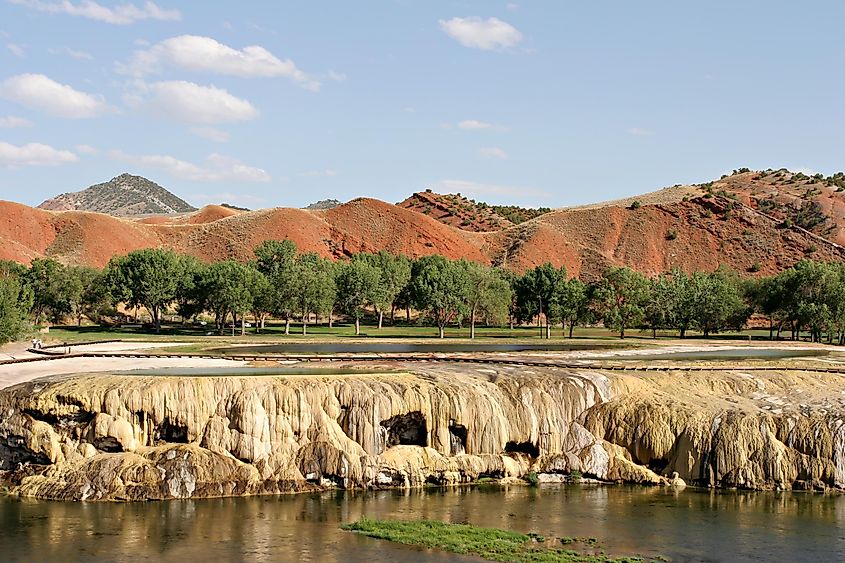
Home to countless natural mineral hot springs, the name of this small resort town located in north-central Wyoming’s Hot Springs County has been derived from the Greek words “thermos,” which means “hot,” and “polis,” which means “city.” In fact, the town boasts the world’s biggest mineral hot spring, aptly named “The Big Spring,” at Hot Springs State Park. As Bighorn Basin’s southernmost municipality, Thermopolis is surrounded by several mountain ranges like the Big Horn Mountains, Bridger Mountains, Owl Creek Mountains, and the Absaroka Range. Managed by the Wyoming Divison of State Parks and Historic Sites, the Hot Springs State Park features a State Bath House, naturally formed travertine terraces, a suspension footbridge across the Big Horn River, boat docks, numerous water slides, two hotels, and a managed herd of American Bison. Some of the town’s other noteworthy tourist attractions include the Hot Springs County Museum and Cultural Center, Downtown Thermopolis Historic District, Wind River Canyon Whitewater Rafting, and the adjoining Wyoming Dinosaur Center.
Sundance
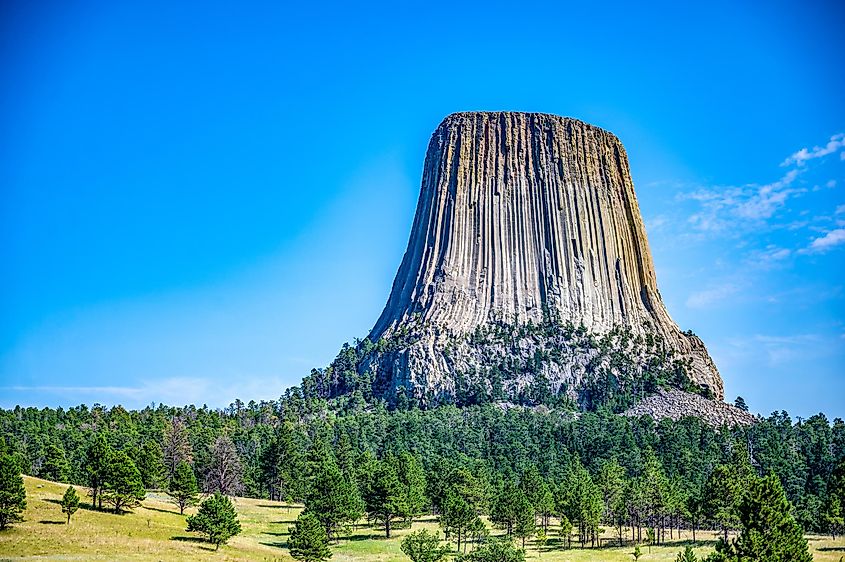
Named after the “Sun Dance” ceremony practiced by several indigenous tribes, this small town and county seat of Crook County is nestled in the state’s northeastern corner, in the valley of Bearlodge Mountains on the western edge of the Black Hills. The streets of this community conjure images of the notorious cowboys, as this is where Harry Longbaugh earned his moniker, “Sundance Kid,” after being jailed for stealing a horse from a local rancher. History enthusiasts can learn more about the town’s past by visiting the Crook County Museum at the historic “Old Stoney” building in the town’s downtown. Sundance’s central location makes it a perfect gateway for some of the area’s must-see attractions like the Devils Tower National Monument, Keyhole State Park, Aladdin General Store, Vore Buffalo Jump, Spearfish Canyon, Crazy Horse, as well as South Dakota’s Mount Rushmore.
Lander

Fremont County’s administrative center, Lander, is located in the state’s west-central portion along the Middle Fork of the Popo Agie River immediately south of the Wind River Indian Reservation. Home to several guest ranches, Lander is a popular destination for those who want to experience the Wyoming ranch life. The town houses various notable attractions, including the Lander Downtown Historic District, Jackson Park Town Site Addition Brick Row, Lander Art Center, Fremont County Pioneer Museum, Lander Children’s Museum, the Evans Dahl Memorial Museum, as well as the neighboring Shoshone National Forest, and the Sinks Canyon State Park. The merrymakers can participate in the many annual events hosted by the town, such as the Pioneer Days Parade and Rodeo, lander Brew Festival, Wyoming State Winter Fair, International Climbers Festival, and the One Shot Antelope Hunt.
Cody
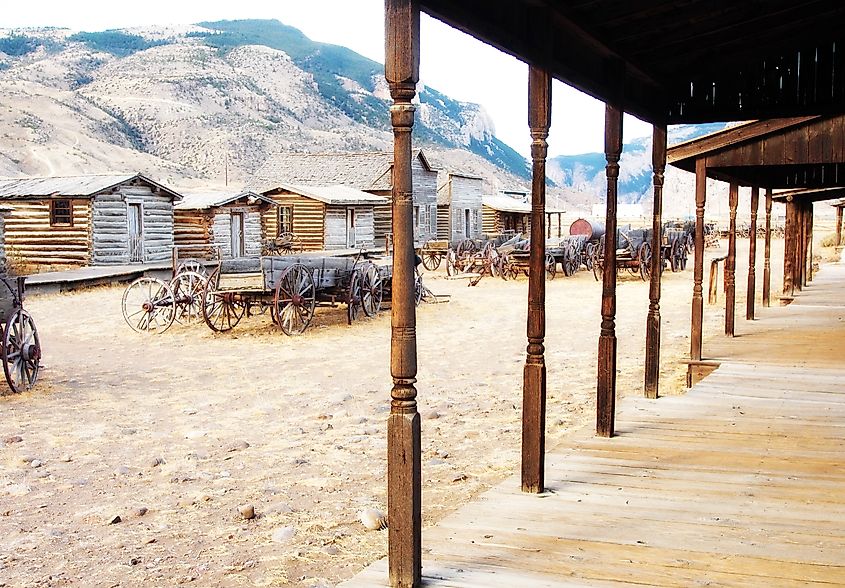
Named after the legendary American showman “Buffalo Bill,” aka William Frederick Cody, this small town located at the western edge of Bighorn Basin is the administrative center of Wyoming’s Park County. Exuding a strong Western feel, Cody’s downtown features an array of art galleries, restaurants, and shopping spaces. Art lovers would not want to miss the town’s many attractions, including the Buffalo Bill Center of the West, Heart Mountain Relocation Center, Cody County Art League, etc. Located just off the Yellowstone Highway is the Old Trail Town, a collection of more than 25 restored Western buildings and artifacts. Due to its proximity to the Shoshone National Forest and the eastern entrance of Yellowstone National Park, Cody is a major outdoor recreation hub offering a variety of recreational activities like hiking, horseback riding, kayaking, whitewater rafting, downhill and cross-country skiing. The town serves as a venue for various annual events such as the Cody Nite Rodeo, Cody Stampede Rodeo, and Rendezvous Royale Art Festival.
Sheridan

Sheridan, the main town of the Sheridan, Wyoming, Micropolitan Statistical Area, is situated at the meeting point of Big Goose and Little Goose creeks on the eastern slopes of the Bighorn Mountains close to the state boundary with Montana. Initially a railroad distribution point with an economy that depended solely on agriculture, Sheridan developed gradually over the years into an economic center of a greater area encompassing three counties in Wyoming’s north-central portion and Montana’s southern part. Often called “Wyoming’s Jewel,” Sheridan is a popular travel stop, and outdoor lovers enjoy multiple recreational activities in the surrounding Bighorn National Forest. The town’s many buildings, including the Trail End State Historic Site, Sheridan County Courthouse, Fort Mackenzie, and Sheridan Inn, are listed on the National Register of Historic Places, offering a glimpse into the town’s glorious past. Some other popular attractions include the Briton Museum, Sheridan County Museum, King Saddlery Museum, Kendrick Park, and the famed Sheridan WYO Rodeo, which draws more than 25,000 guests to its annual weeklong celebrations at the Sheridan County Fairgrounds.
Pinedale

An important hunting outfitting town in Wyoming’s Sublette County, Pinedale sits in a high alpine valley at an elevation of 7,175 ft, encircled by three mountain ranges: Wind River Range, Wyoming Range, and Gros Ventre Mountains. Being a major gateway to the Jackson Hole area, backpackers can easily access the Continental Divide Trail, Cirque of the Towers, and Titcomb Basin. Visitors to Pinedale can also explore the surrounding Bridger-Teton National Forest by horseback and ATVs or grab a kayak and fishing rod and head straight to Fremont Lake. During winter, Pinedale provides access to more than 300 miles of groomed snowmobile trails across varied terrain, along with its frozen lakes that offer recreational activities like snowshoeing, skating, ice fishing, etc. After all your adventures, relax at the downtown’s many breweries and restaurants.
Powell

Designated an All-America City in 1994 by the National Civic League, Powell is perfectly placed in the Big Horn Basin in the state’s northwestern corner, approximately 75 miles east of Yellowstone National Park and 98 miles south of Billings, Montana. Named in honor of the famed explorer John Wesley Powell, the great weather, friendly people, the Northwest College campus, and four seasons of outdoor recreation make Powell a refreshing place to reside. Some of the top attractions in Powell include the Heart Mountain Interpretive Center, Homesteader Museum, and the Wild Rose Action Center.
From the picturesque mountain vistas of Jackson to the western cultures of Lander, these small towns that make up the Cowboy State offer a memorable experience for every visitor. Whether you are an adventure lover, a history aficionado, or just someone searching for a serene locale to reconnect with nature and unwind away from the hustle and bustle of daily city life, look no further than these adorable towns in Wyoming.

